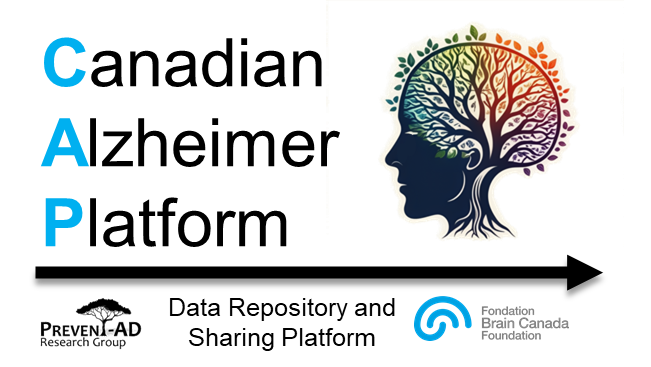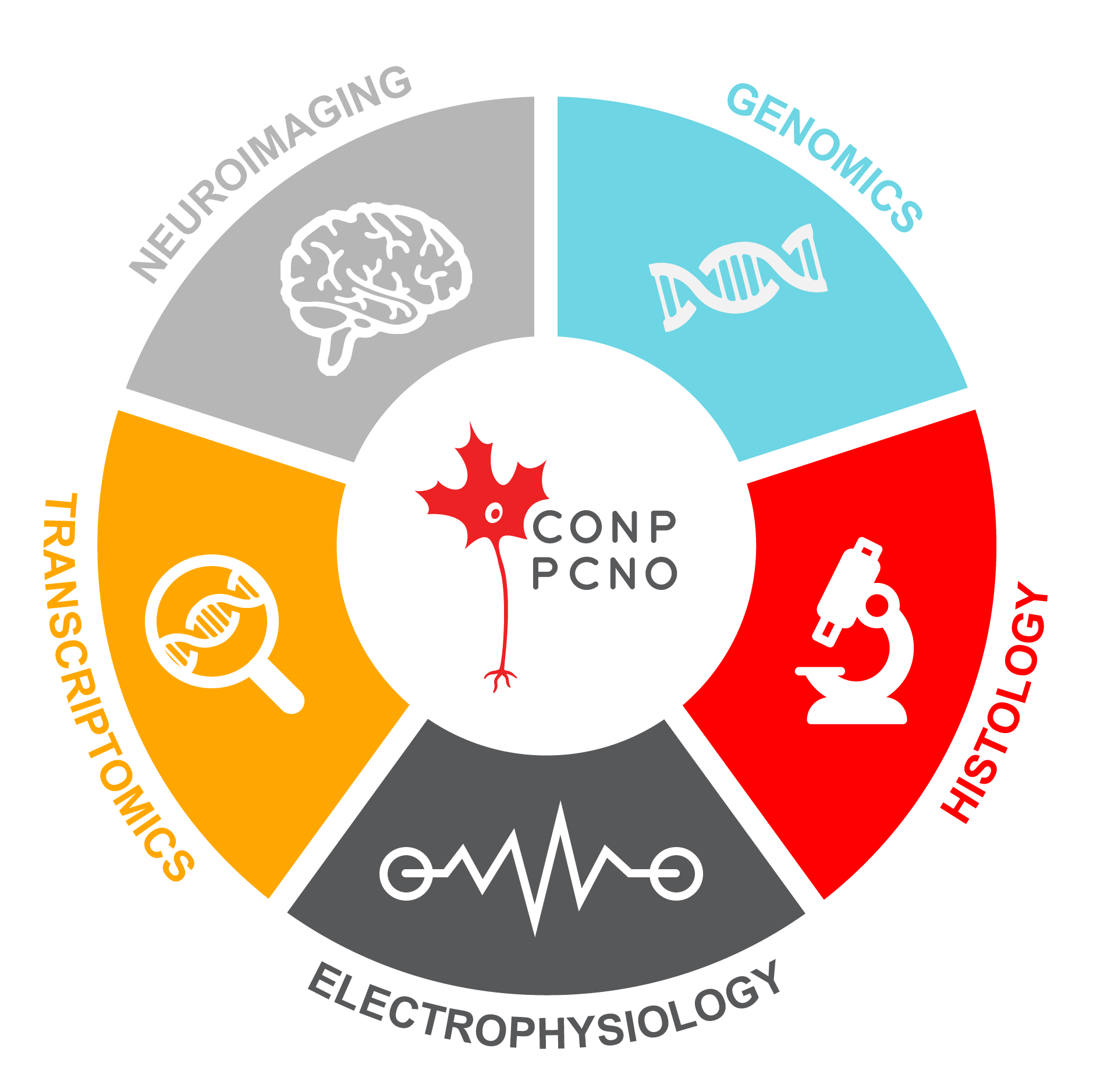Canadian Alzheimer Platform
Data access

The Canadian Alzheimer Platform (CAP) is the first Canadian platform equipped with the necessary infrastructure to acquire, harmonize, and share sensitive data on the preclinical phase of Alzheimer's disease following the principle of Open Science.
Data access for the scientific community
Terms of use: For direct access to PREVENT-AD data, you will need to request an account on one of the LORIS databases below, provide your name and email address, and agree to a set of terms of use.
* Access to this platform is free of charge for researchers
Data for researchers
Types of data: Demographic, anthropometric, and medical data, lifestyle questionnaires, neuropsychological and neurosensory data, genetic variants, blood biochemistry, CSF protein levels, neuroimaging (MRI/fMRI, PET scans), Alzheimer’s disease progression scores.
Years: 2011 to 2023
.

For open data (MRI only, 2011 to 2017): Click here
Find all this data via the unified interface of the Canadian Open Neuroscience Platform

Since 2019, we have had an average of 112 new users per year, for a grand total of 562 users (research groups) including more than twenty companies (biotechnologies, artificial intelligence, neuro-imaging) from over 35 different countries.
* The CONP Portal is a web interface that simplifies the access and sharing of datasets and tools, thereby facilitating the practice of Open Science in the neuroscience community. Our datasets are the most visited on the Canadian Open Neuroscience Platform.
Access to Internal Data for StoP-AD Centre Collaborators
Collaborators of the StoP-AD Centre may access internal datasets if they request it. To do so, they must sign a data use agreement and agree to publication policies. All scientific publications from our research group and our collaborators include the ‘PREVENT-AD Research Group‘ among the co-authors. See Publications.
Data sharing between Research and the Clinic for the benefit of patients
Another goal of the CAP is to facilitate the exchange of data with healthcare professionals, thus accelerating the translation of research results into clinical practice. Bridges were created with 5 collaborating memory clinics (Moe Levin (CIUSSS de l'Ouest-de-l'Île-de-Montréal), McGill Centre for Studies in Aging (McGill University), Argyll Memory Clinic (CIUSSS de l'Estrie), Interdisciplinary Memory Clinic (Quebec) and MoCA Institute & Clinic (Greenfield Park)).
Harmonization with other major Alzheimer's disease initiatives
The data integrated into CAP will be harmonized with other major Canadian and international Alzheimer's disease initiatives to facilitate the pooling of data on the different phases of Alzheimer's disease, thereby reducing the need to duplicate studies and capitalizing on the wealth of research data already available. Discussions and projects are ongoing.
* This project is made possible by the Canadian Brain Research Fund, an innovative agreement between the Government of Canada (via Health Canada) and the Brain Canada Foundation.
